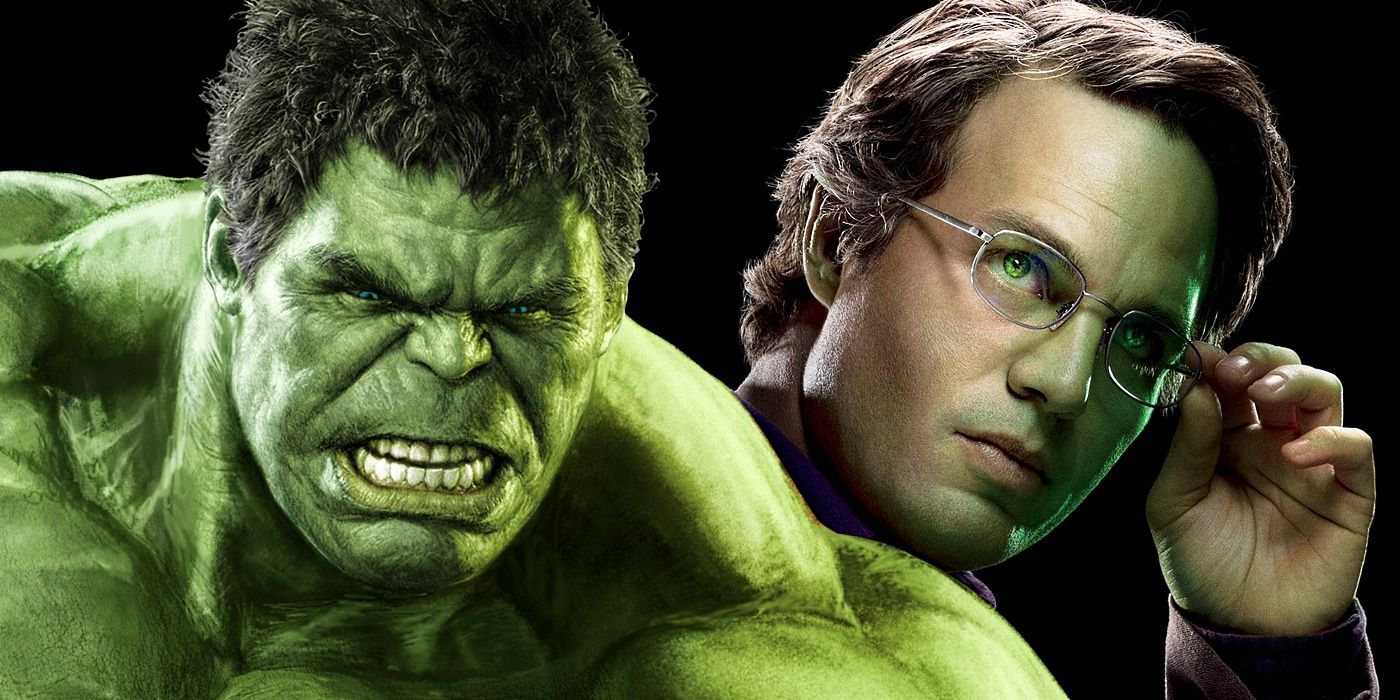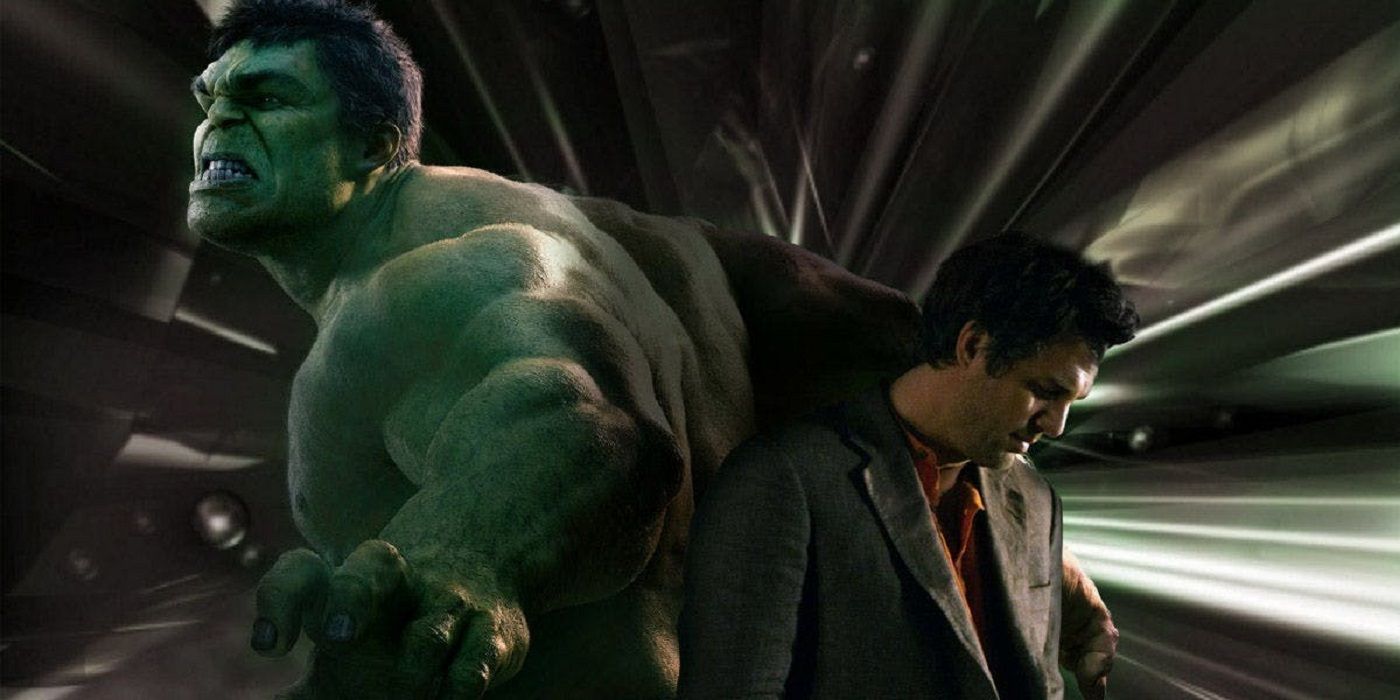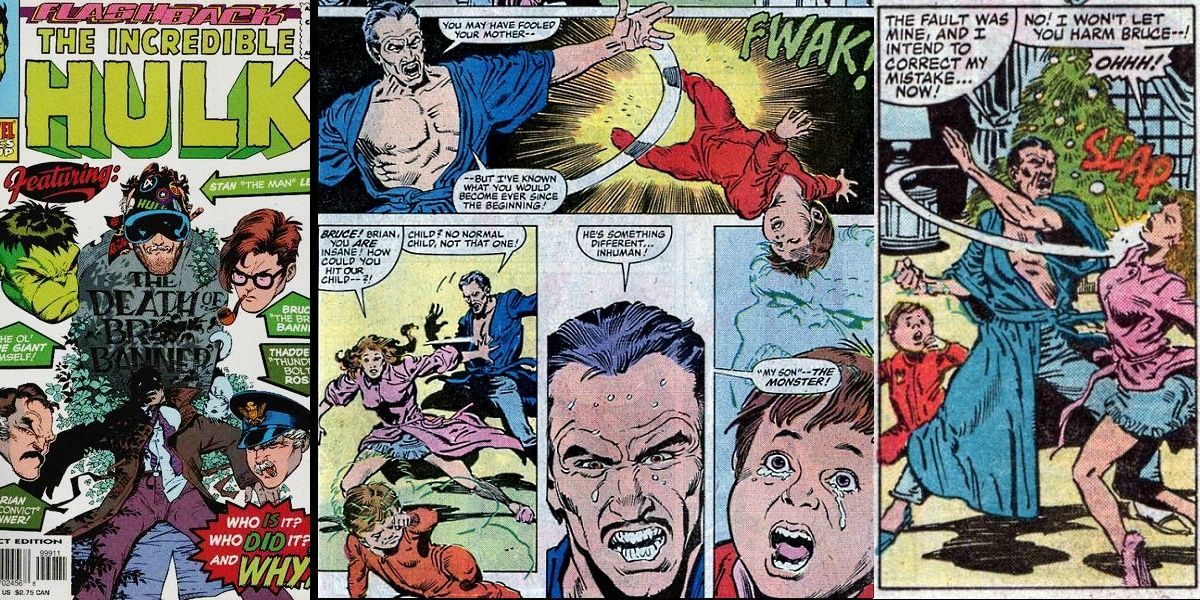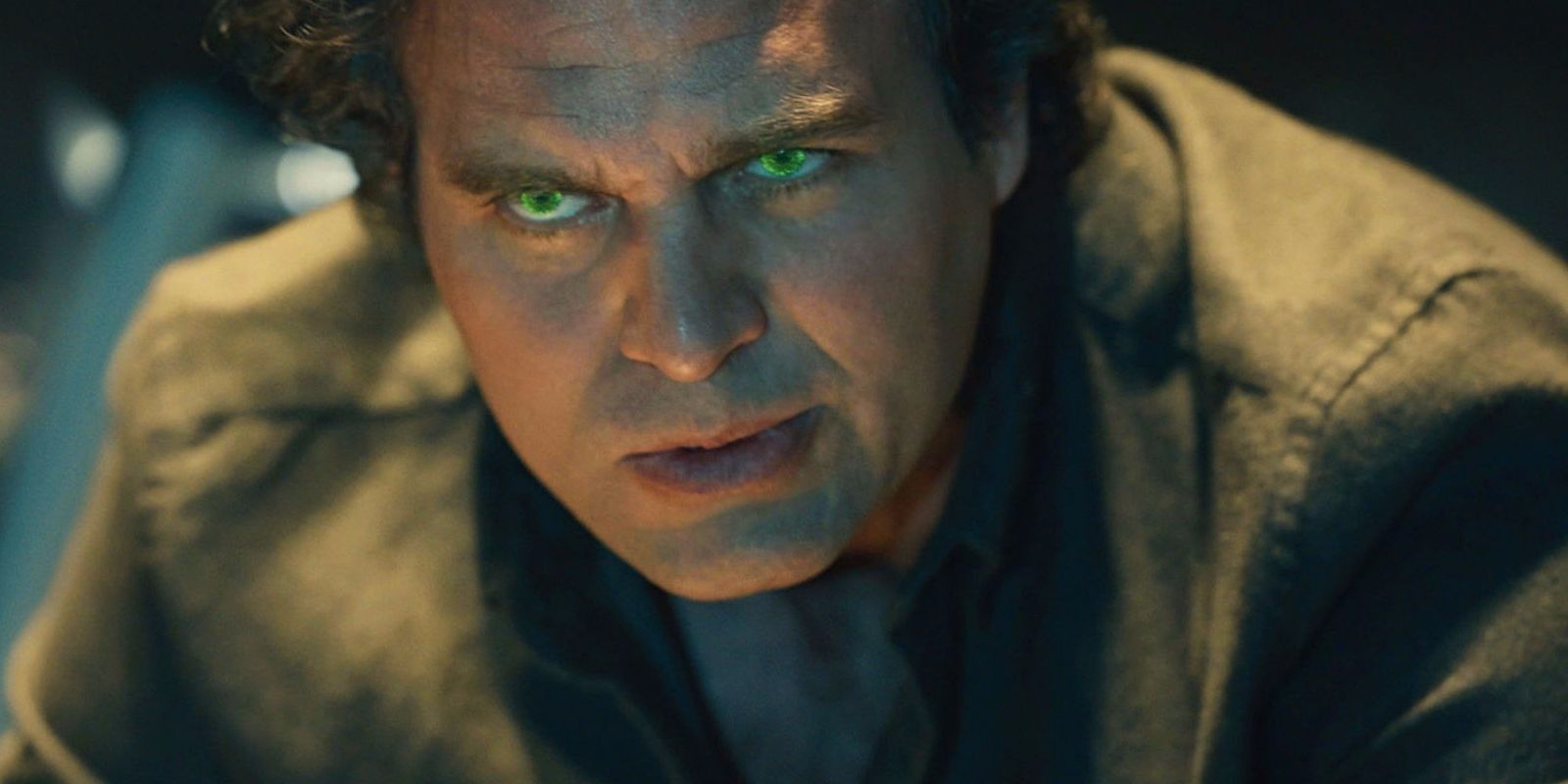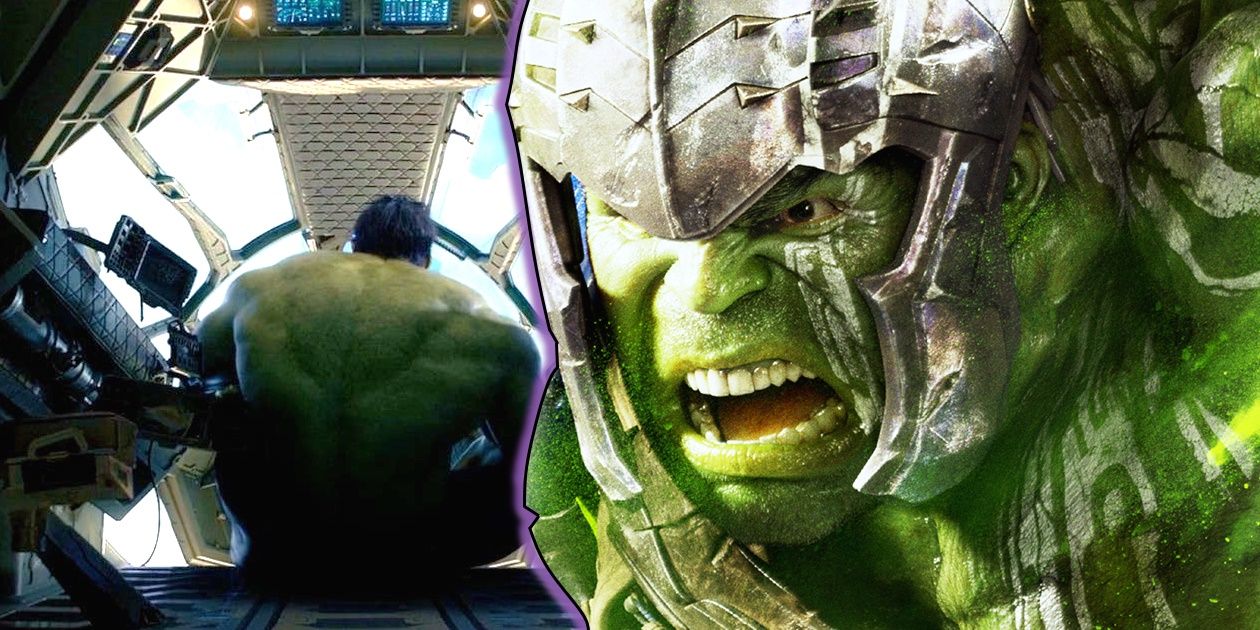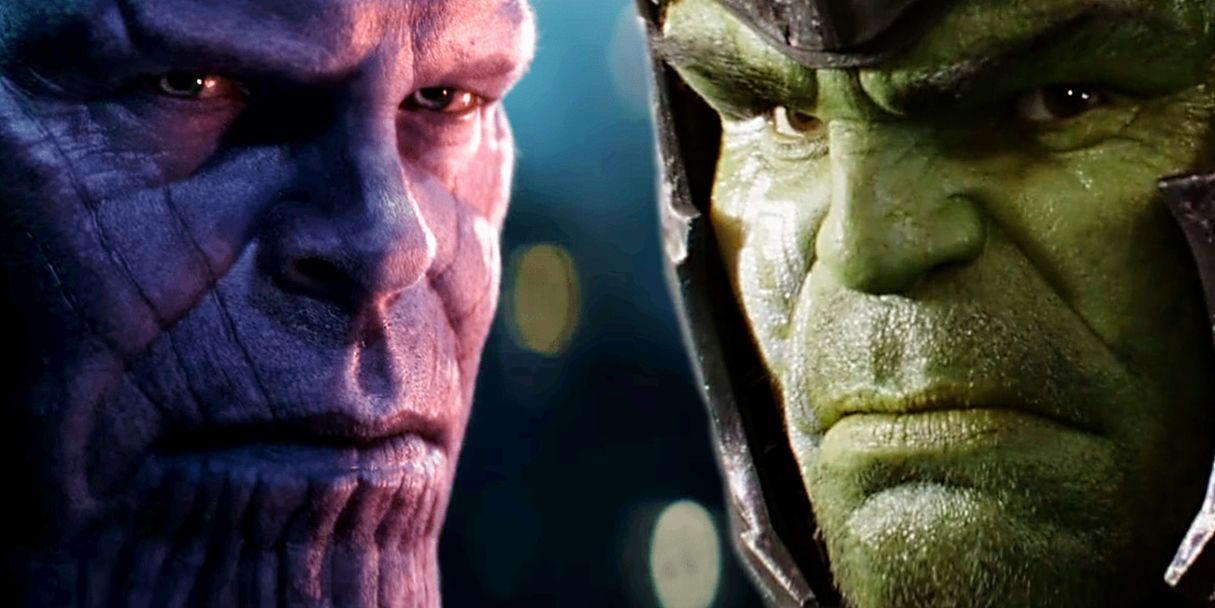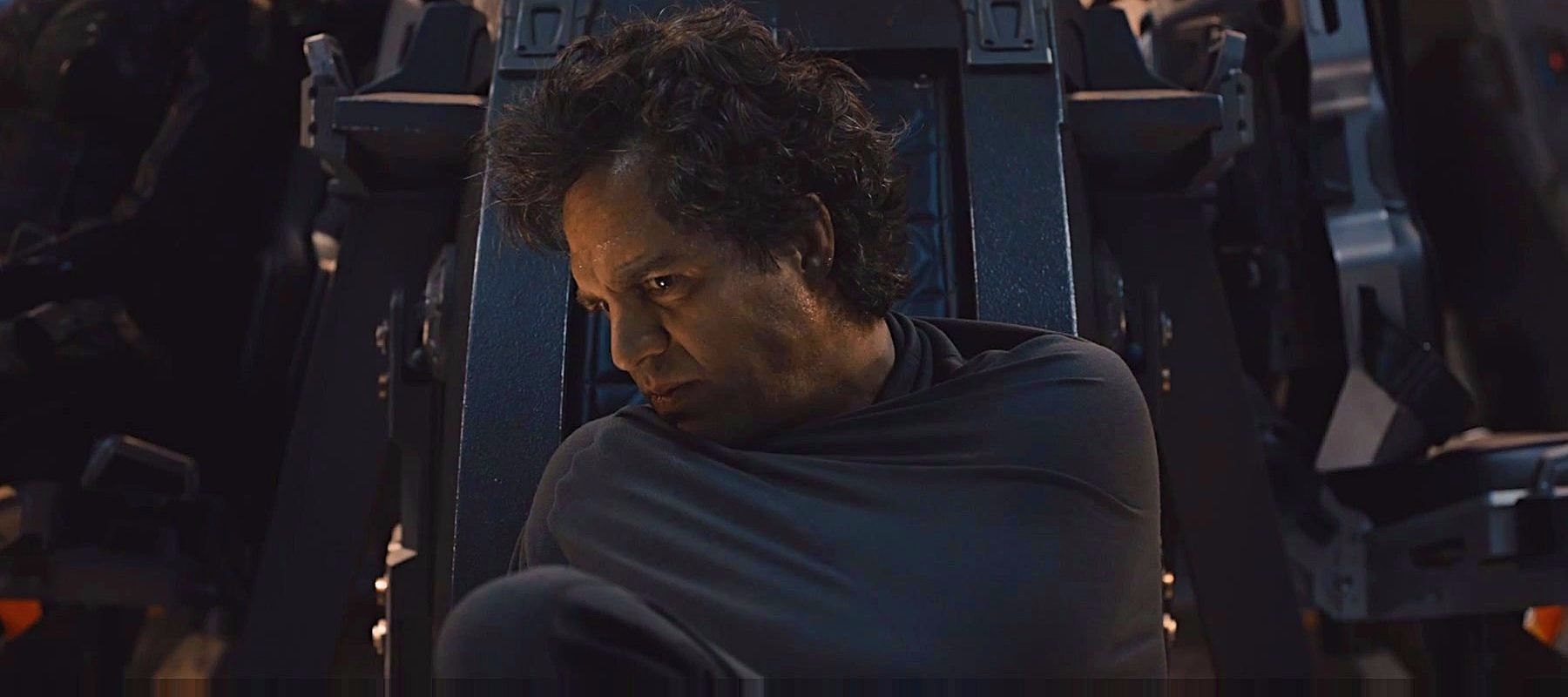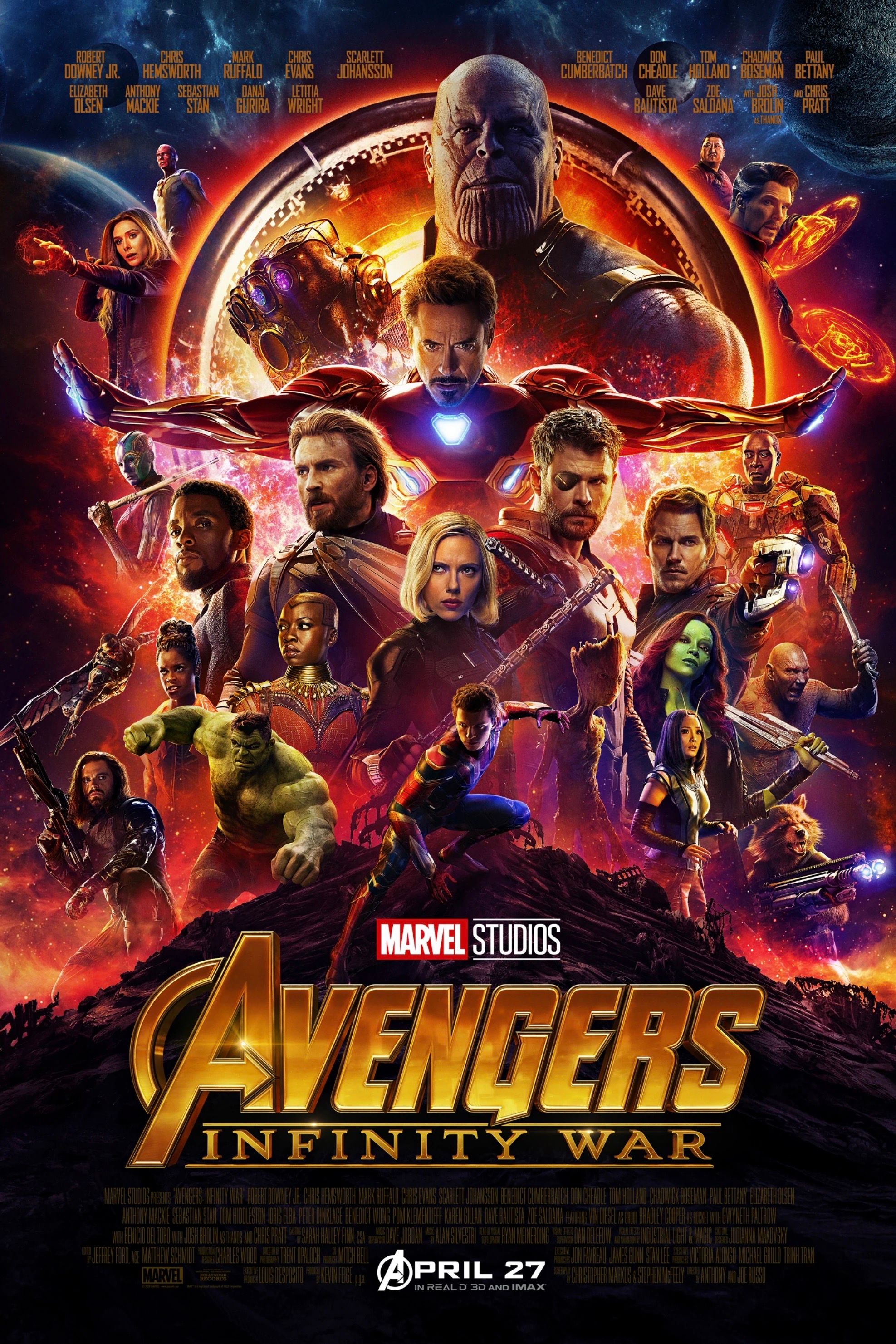A new HULK story begins in Avengers: Infinity War and is promised to be resolved in Avengers 4 - asking a question familiar to every fan of the comics: who will win the battle for control, Bruce Banner... or Hulk?The question was forcefully addressed at the end of Avengers: Age of Ultron when the Hulk left the Avengers aboard a Quinjet, eventually flying through a wormhole into Thor: Ragnarok to the planet Sakaar. There, in a shocking twist, the Hulk remained in control for two years. How long could the big, green bruiser keep Banner "locked in the trunk" if pushed?RELATED: Mark Ruffalo Confirms Thanos Meet-Up At End of Thor: RagnarokBanner explains to Thor that he fear one more transformation would be the end of him, handing permanent control over to "the other guy." In a moment of true heroism at Ragnarok's climax, he still chose to transform into the Hulk anyway, recognizing that the Hulk's might was needed. The trailer for Infinity War has apparently proven that Banner's fear was ill-founded: the encounter with Thanos will send the Hulk plummeting to Earth, and he'll transition into Banner one more time.Perhaps one last time. So what should fans expect - and how important is that question to the future of the MCU?This Page: How The MCU Hulk Has Followed The Comics
The Bruce/Hulk Conflict Is A Core Comic Concept
The conflict between Banner and the Hulk is a core idea in the original comics. Yet there have always been two different interpretations: different writers have taken different approaches, meaning the actual overarching narrative is inconsistent.
The first interpretation is typically seen in the works of Bill Mantlo. Flashback issues and therapy sessions explored it in detail, most notably Incredible Hulk #312 and Incredible Hulk #377. By this reading, the Hulk is actually an aspect of Banner's own personality. The young Bruce suffered a horrifically abusive upbringing, rejected by his alcoholic father, and left if the care of a "loathsome nurse." His father had worked in the nuclear industry, and believed his son to have been mutated - to have become nothing more than a monster. He lashed out at every sign of Bruce's innate genius, and even beat his wife when she tried to defend the young Bruce.
Matters came to a head when Bruce's father actually murdered his mother in front of his eyes. Bruce internalized that rage, becoming a recluse who struggled to socialize. As he said watching over his mother's body, "Emotion's bad. It hurts people." All those emotions were hidden, repressed and never faced. According to this interpretation, when the Gamma Bomb exploded, the years of "pent-up rage locked inside a lovelorn child" were finally released.
Another interpretation argues that this goes still further; that Bruce became a victim of multiple personality disorder (or dissociative identity disorder). Peter David suggested that Bruce's harsh childhood, and his acts of repression had essentially creative multiple personalities - and the Hulk is one of them. David went one step further, creating other Hulk identities such as the Grey Hulk. These wound up in conflict, and it took psychiatrist Doc Samson to integrate the different personalities.
RELATED: Marvel Comics Just Made HULK An Immortal Hero
One interpretation argues that the Hulk is simply an expression of Banner's repressed emotions. The other goes one step further, suggesting that the Hulk is a different personality, competing for control of the same body (which Ragnarok also suggests). Whichever interpretation you prefer, both suggest conflict between Banner and the Hulk. In the first interpretation, the Hulk is a part of Banner that he chooses to bury, and fears to acknowledge. In the second, the Hulk is an entire personality, independent of Banner's, battling to come out and take control.
The MCU's Interpretation Of The Hulk/Banner Conflict
At first glance, the MCU has traditionally gone with the idea that the Hulk is Bruce's repressed emotion - doing the things that Bruce can't, but wishes he could. In The Incredible Hulk, any intense experience of emotion - even passion - can unleash the Hulk. In The Avengers, Banner tells Captain America that he has one secret: "I'm always angry." Bruce is presented as always one step away from transforming into the Hulk, desperately seeking to control his emotions. (It's notable that the Hulk and Bruce share the same attraction to Betty Ross and Black Widow, suggesting they share more than Bruce would like to admit.)
But even at this early stage, there are hints that there's more to the dynamic than repression or wish fulfilment. In The Avengers, Bruce realizes that the Hulk will not harm innocents, and so allows himself to transform. For the first time, he's accepted that the Hulk is a part of him... but that he also forms a part of the Hulk. And that seems to have subtly changed the psychology of it all.
But with Age of Ultron and Thor: Ragnarok, it's clear that the MCU version of Hulk is no longer the 'other' identity of Bruce Banner. In fact, he may be the more powerful of the two characters fighting for one body.
Thor: Ragnarok Confirms Hulk May Be Equally in Control
While introduced as an analogue for Bruce Banner's rage, or an uncontrollable reflection of himself, the dynamic changes from one that gets audiences cheering when Bruce transforms into (or gives in to) Hulk. By Age of Ultron, Bruce has no memory of what he does while in the Hulk's form. It's as though it's being done by a different person; one who shares common traits with Bruce, and yet is distinct.
Thor: Ragnarok takes this one step further. Heartbroken by his relationship with Black Widow, the Hulk flees from the Avengers - and takes control of the steering wheel. Shockingly, Bruce remains in Hulk form for at least two years, and the Hulk grows into a separate, distinct persona.
It takes Thor's arrival to draw Bruce back to the surface, and he is left shaken by the experience. Banner is faced with the disturbing truth that the Hulk persona may well be stronger than he is, and that his own identity could ultimately be erased. In spite of that, in a single heroic moment Bruce chooses to change one last time.
Where Will The Story Go in Infinity War & Beyond?
Thor: Ragnarok closed with Bruce in Hulk form once again. Crucially, though, the trailer for Infinity War has already demonstrated that the Hulk will be cast down to Earth. Presumably defeated by Thanos, the Hulk will transition back into Bruce Banner form. There's some evidence that Banner will initially resist the urge to change back, even piloting Iron Man's Hulkbuster armor rather than transform into the Hulk. No doubt the Banner persona will be strengthened by his reunion with Black Widow, and Scarlett Johansson has teased a reunion between the Hulk and Black Widow.
RELATED: There's Some Great Science Bros Stuff in Avengers: Infinity War
Ruffalo has also hinted that Marvel may consider the "World War Hulk" event, or something close to it, at some point down the road (but not in the immediate future). In the comics, this saw the Hulk persona take full control for a while, and seek brutal revenge on Earth's heroes - who he believed had wronged him. The Hulk actually led a planetary invasion, and brought most of the Avengers, the X-Men, and the Fantastic Four to their knees.
He was only defeated by the cosmic power of The Sentry, finally reverting back to Bruce Banner. Marvel has already incorporated the "Planet Hulk" story, precursor to "World War Hulk," into Thor: Ragnarok. So it's certainly possible they could choose to add elements of "World War Hulk" into the mix, too.
Ultimately, though, there are only two real ways this character arc can end. Either one personality is destroyed forever, or the two blend and create something new. The latter was the approach taken by Peter David, and led to a period in which Bruce and the Hulk were unified. The Hulk proved more formidable than ever before, a terrifyingly powerful being who retained the genius of Bruce Banner.
Naturally, these are comics, and that adjusted status quo didn't last beyond David's run; but it would certainly be an appropriate direction to take on the big screen. The only question would be whether or not Marvel explored Banner's tragic history in order to bring about the integration. David's plot used hypnosis to explore the impact of his childhood on Bruce's mind, and ultimately force the different personalities to merge. It was a powerful, albeit disturbing, scene - and it may prove a little too much for a PG-13 Marvel movie.
It's worth remembering that Bruce's background trauma is no coincidence. The Hulk has always been a favorite for children whose lives are shaped or impacted by abuse, giving voice to their own repressed anger, sadness, or sense of injustice inflicted upon 'the little guy.'
It's always tempting to assume that superheroes, as part of pop culture, somehow don't matter. The reality, however, is that the most successful superheroes always resonate with viewers because they speak to their humanity. That makes this Hulk arc - the battle for control - one that really matters.
The story arc may have kicked off humorously in Thor: Ragnarok, but it will need a careful and sensitive resolution through Infinity War and beyond in order to conclude with the power it deserves.
MORE: The Hulk Will be 'Impressed' By Thanos in Infinity War

